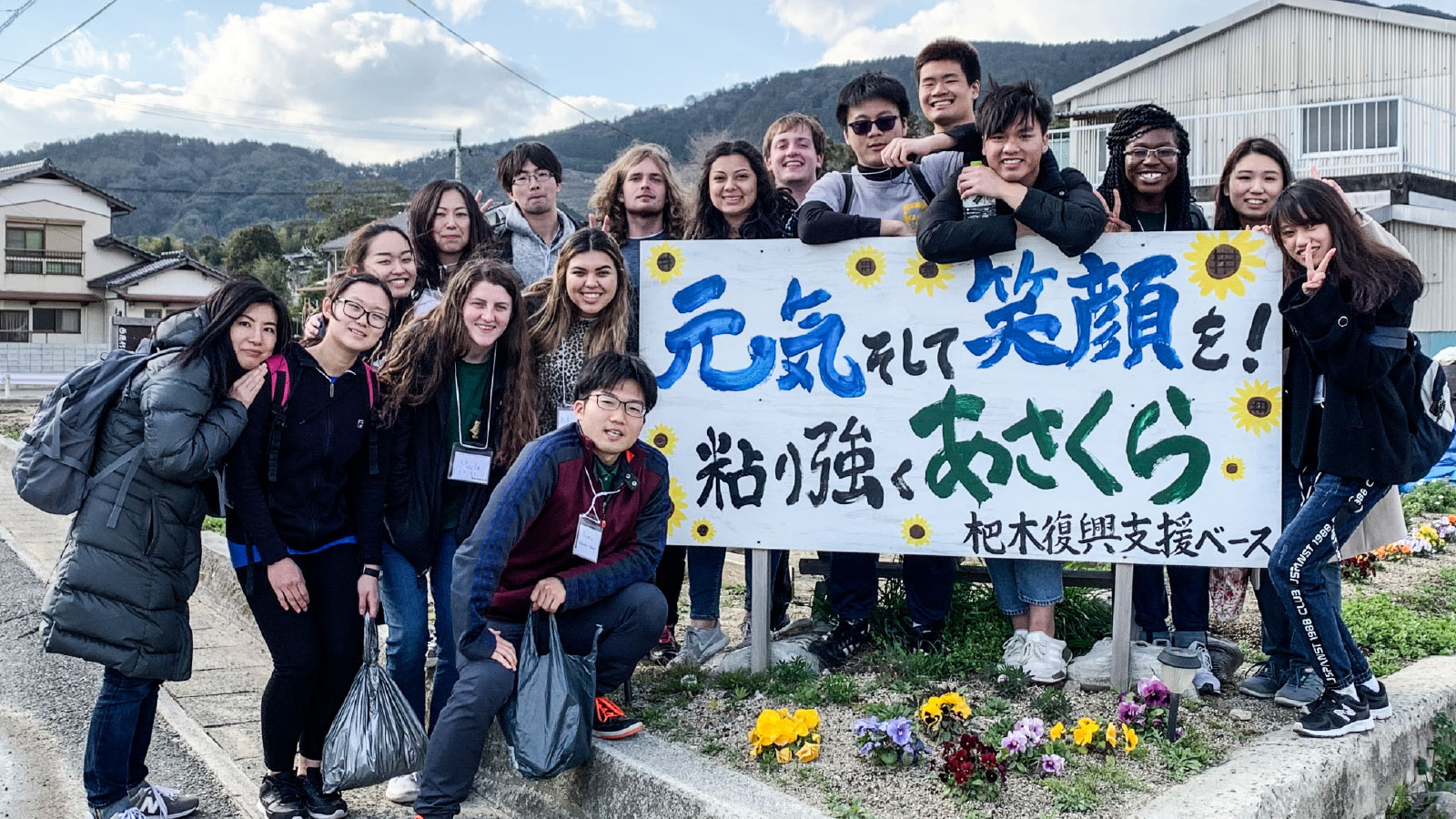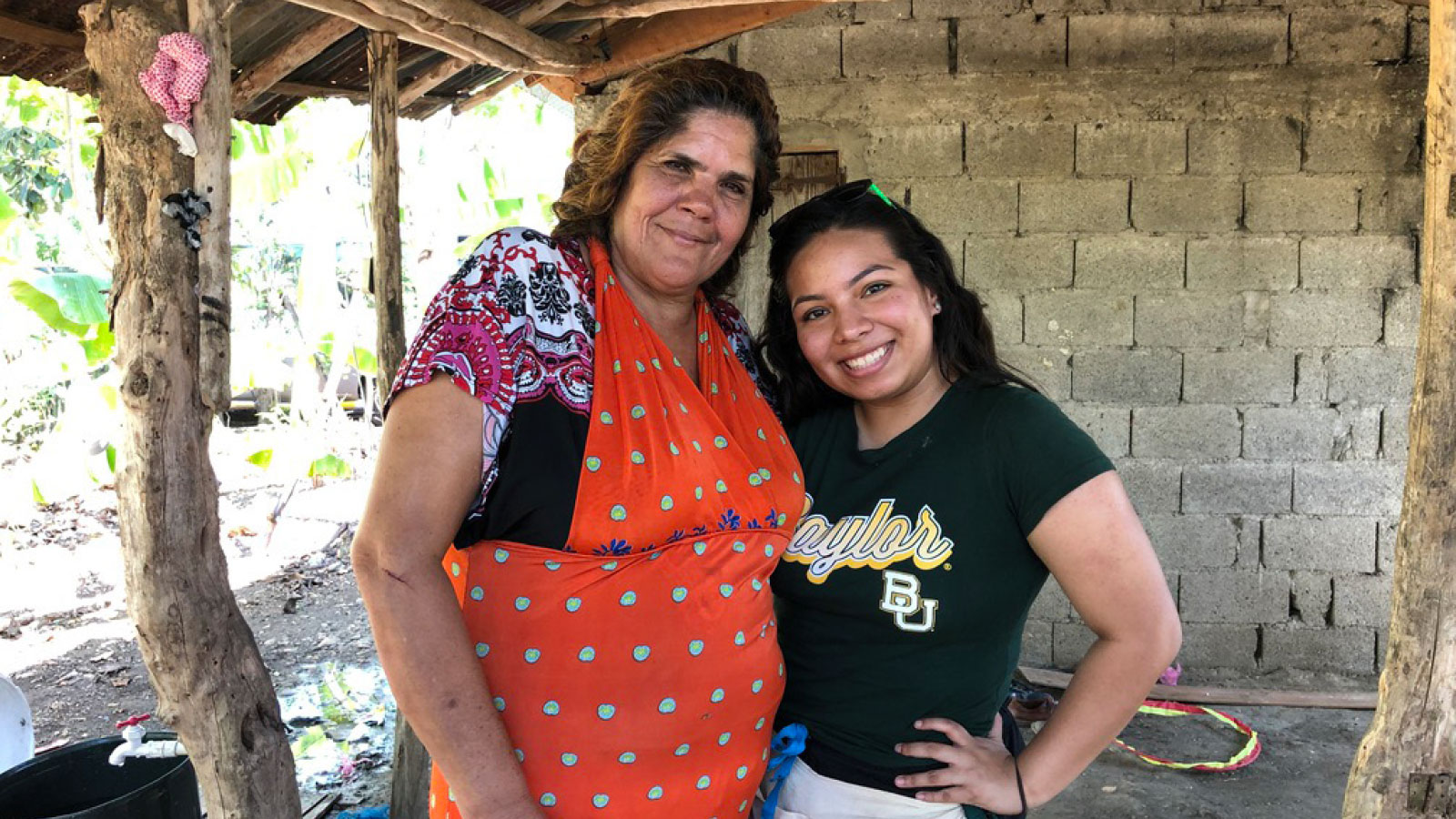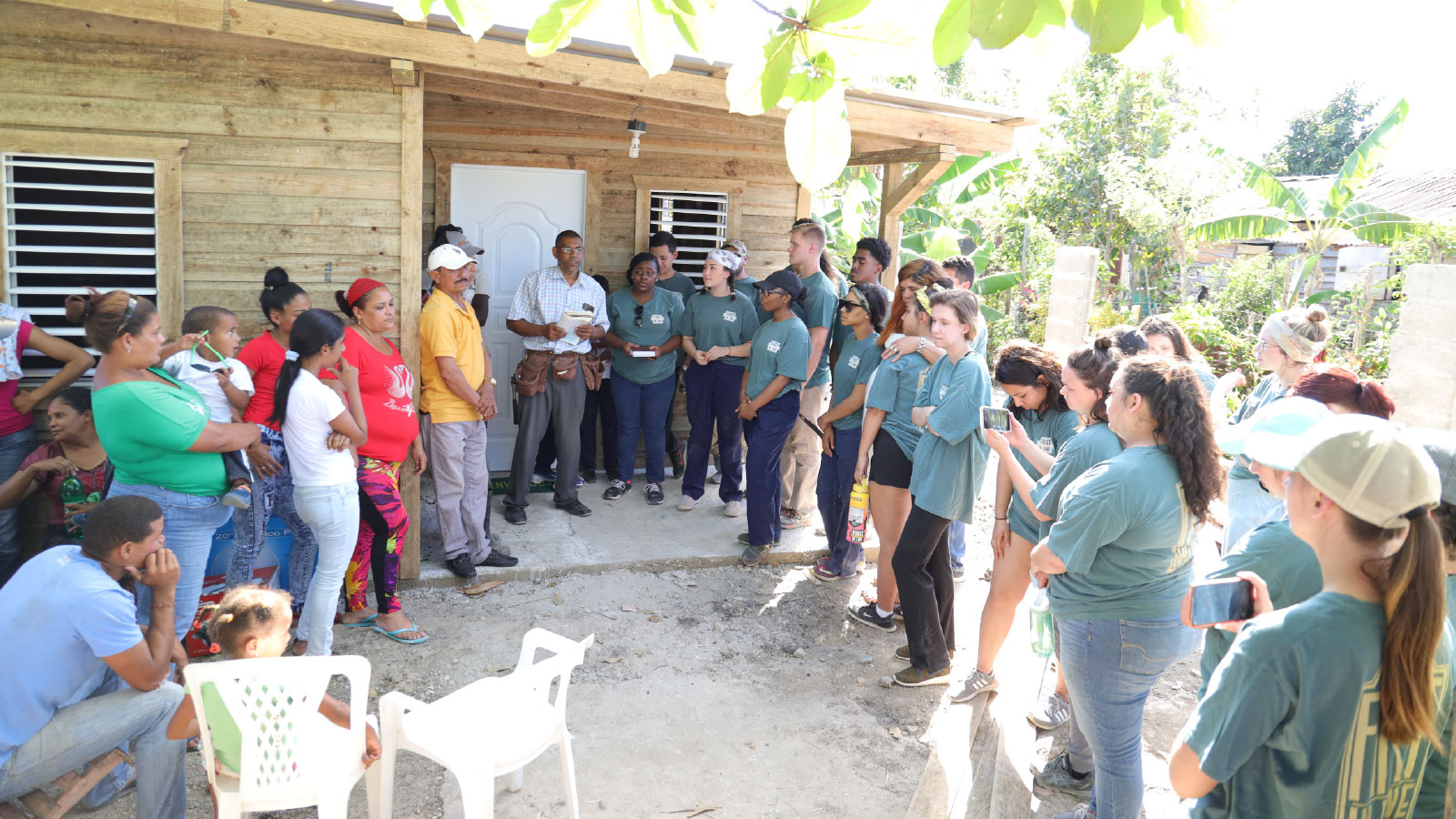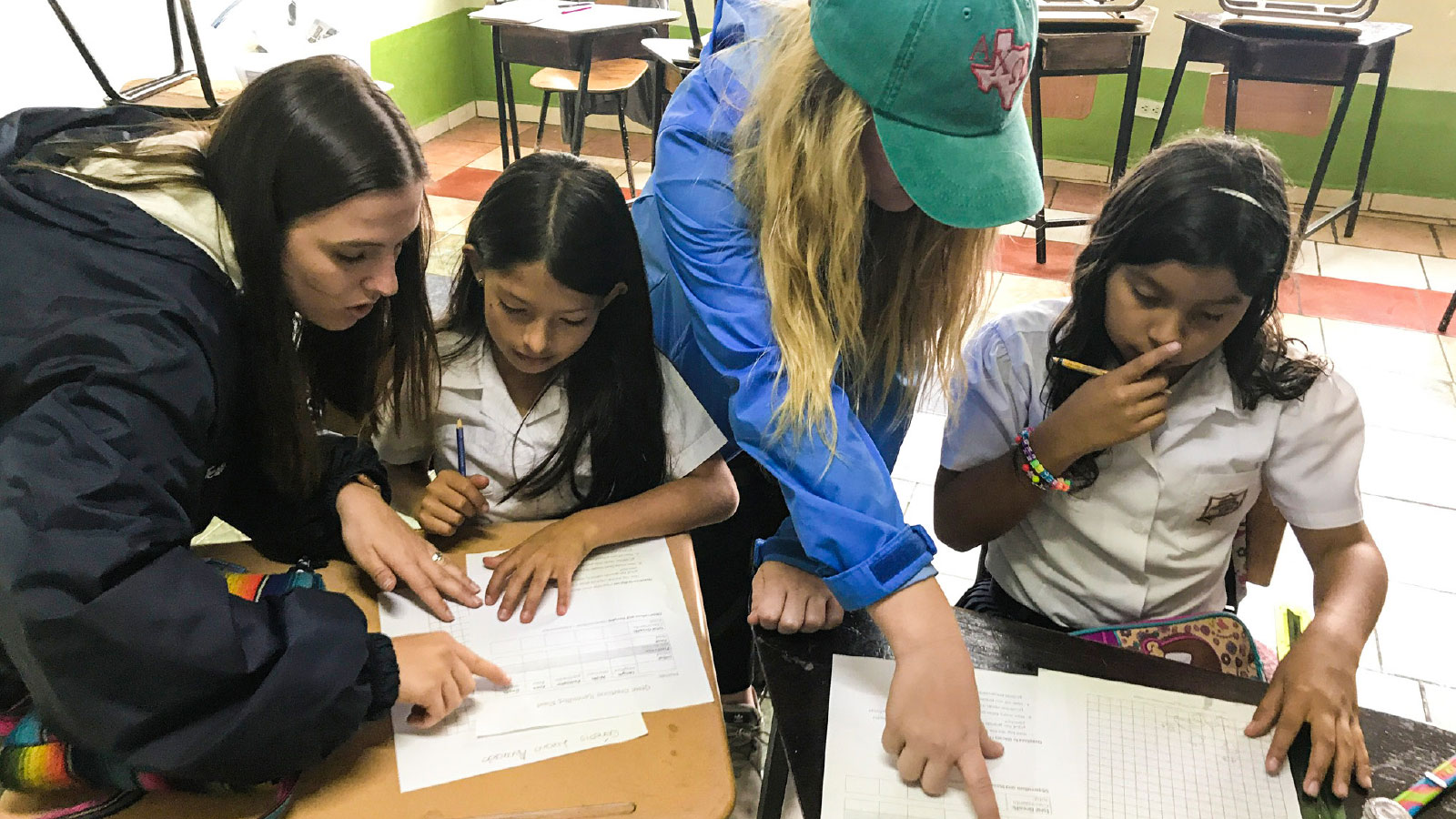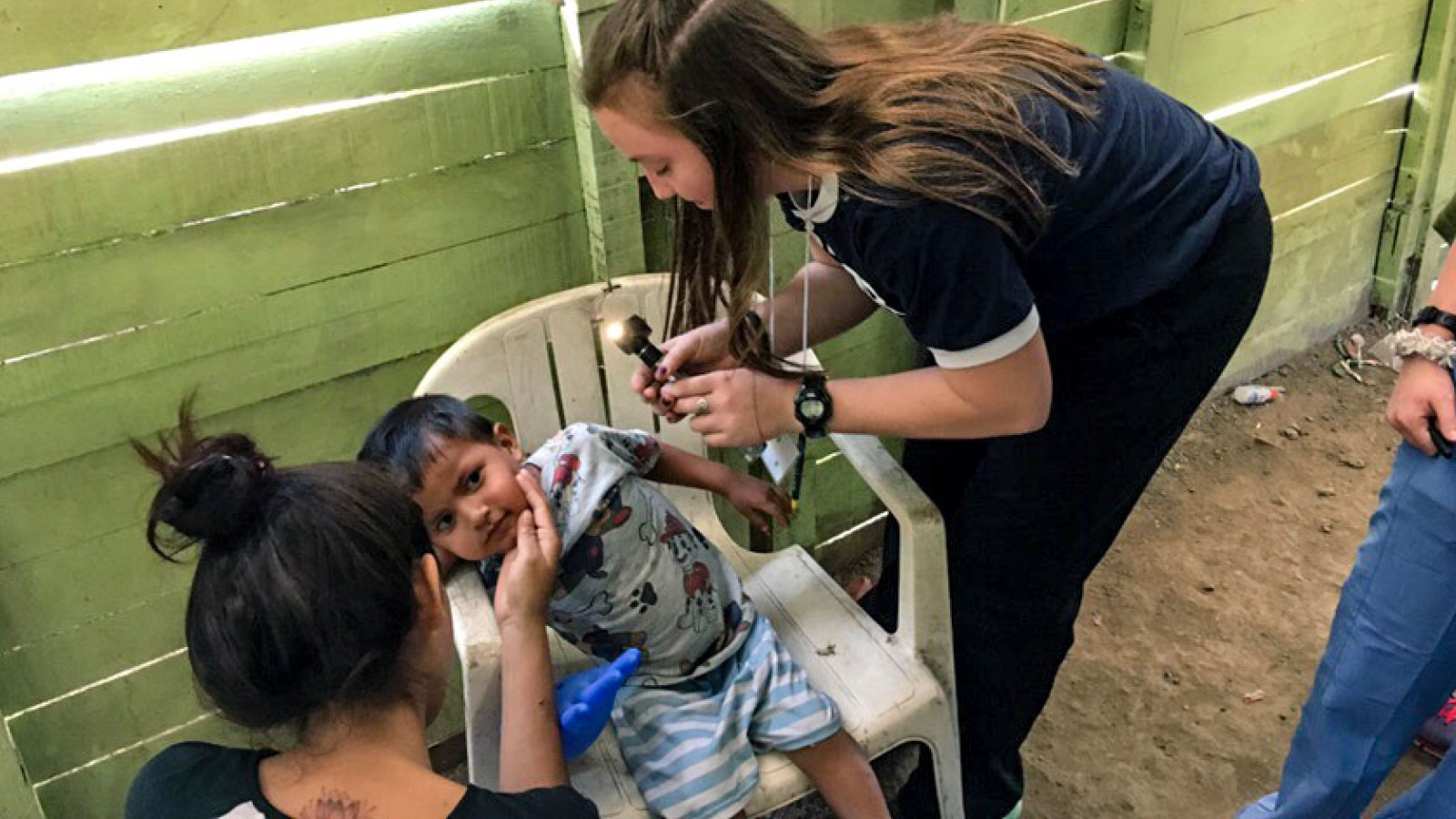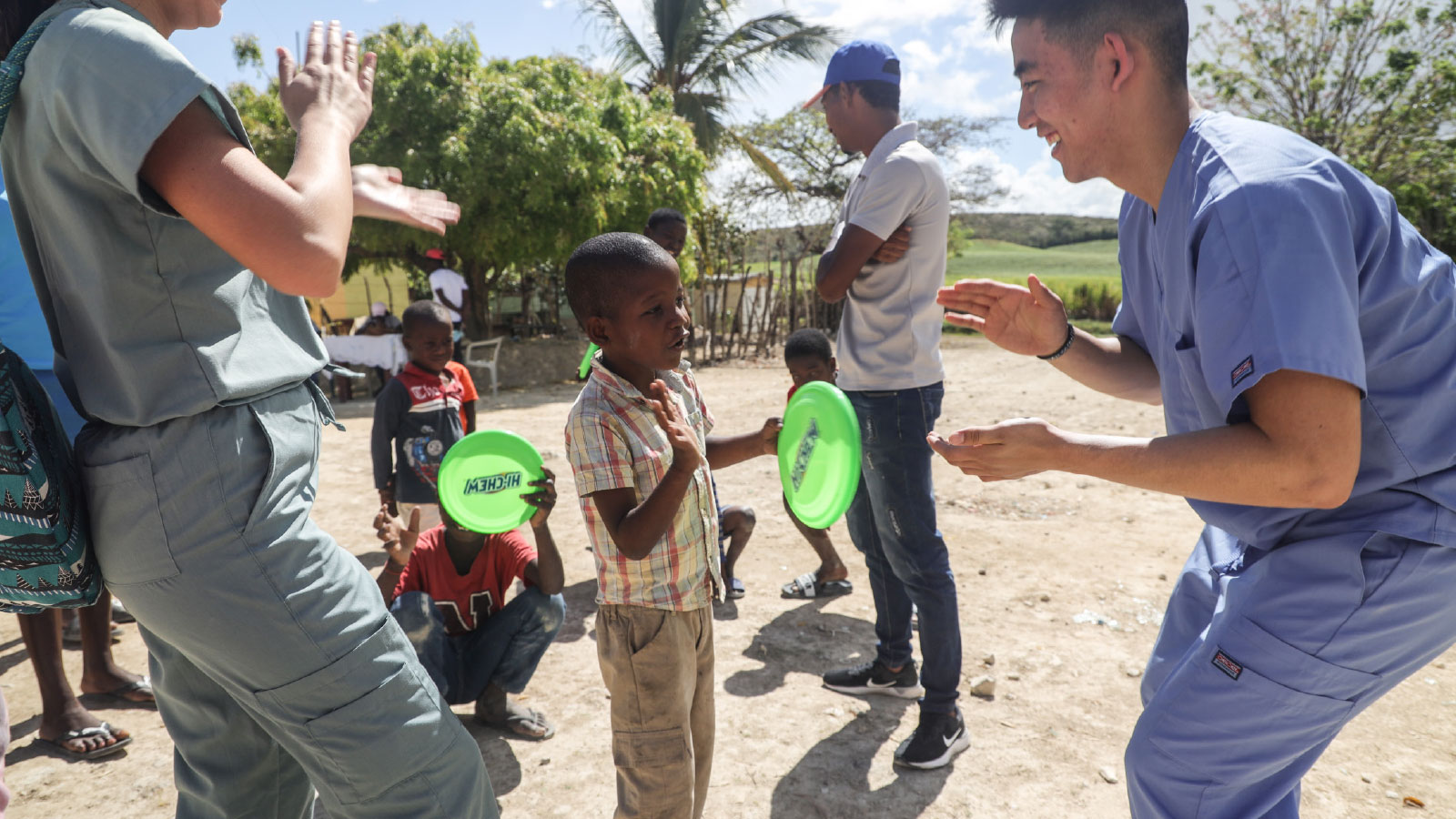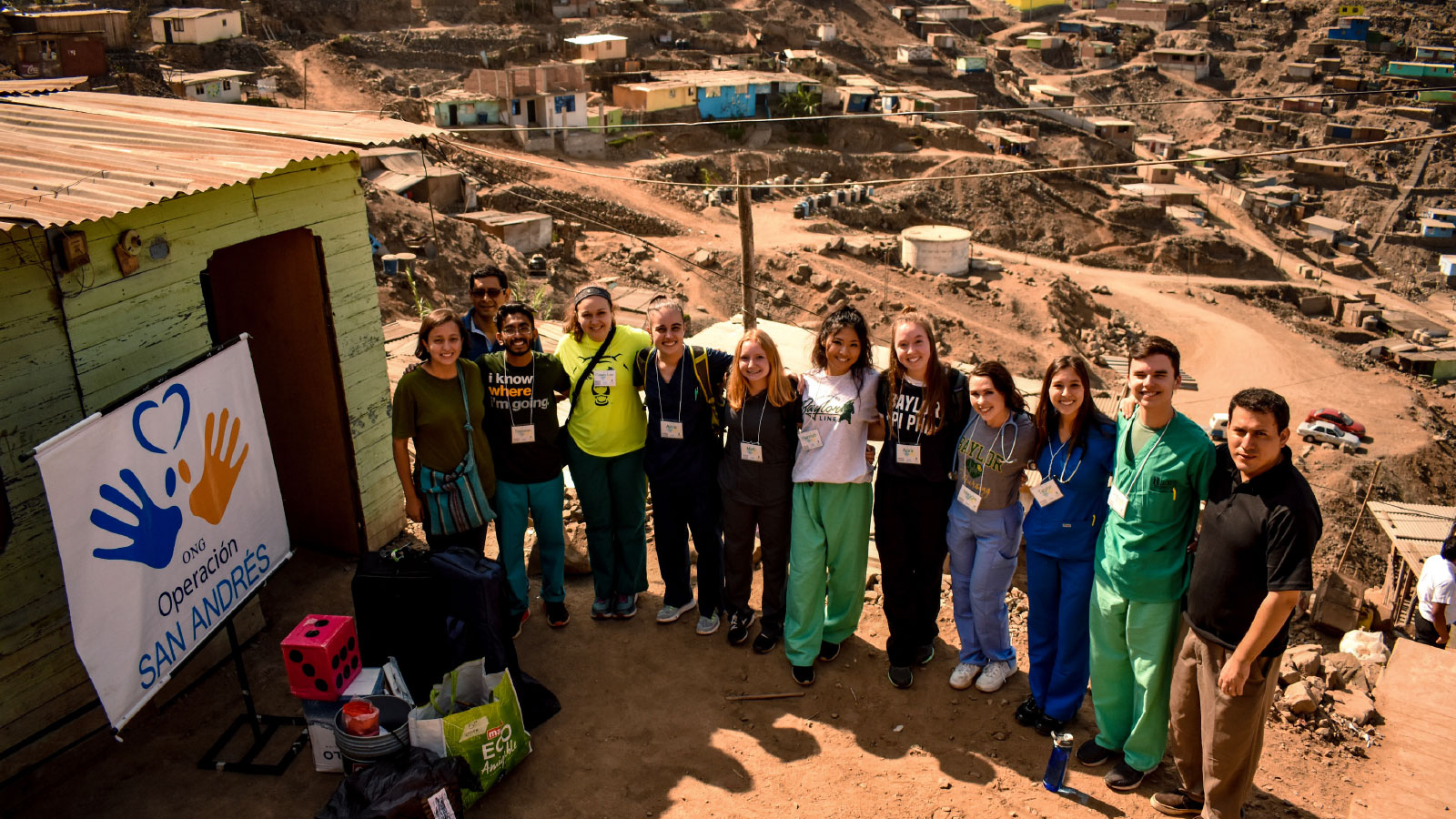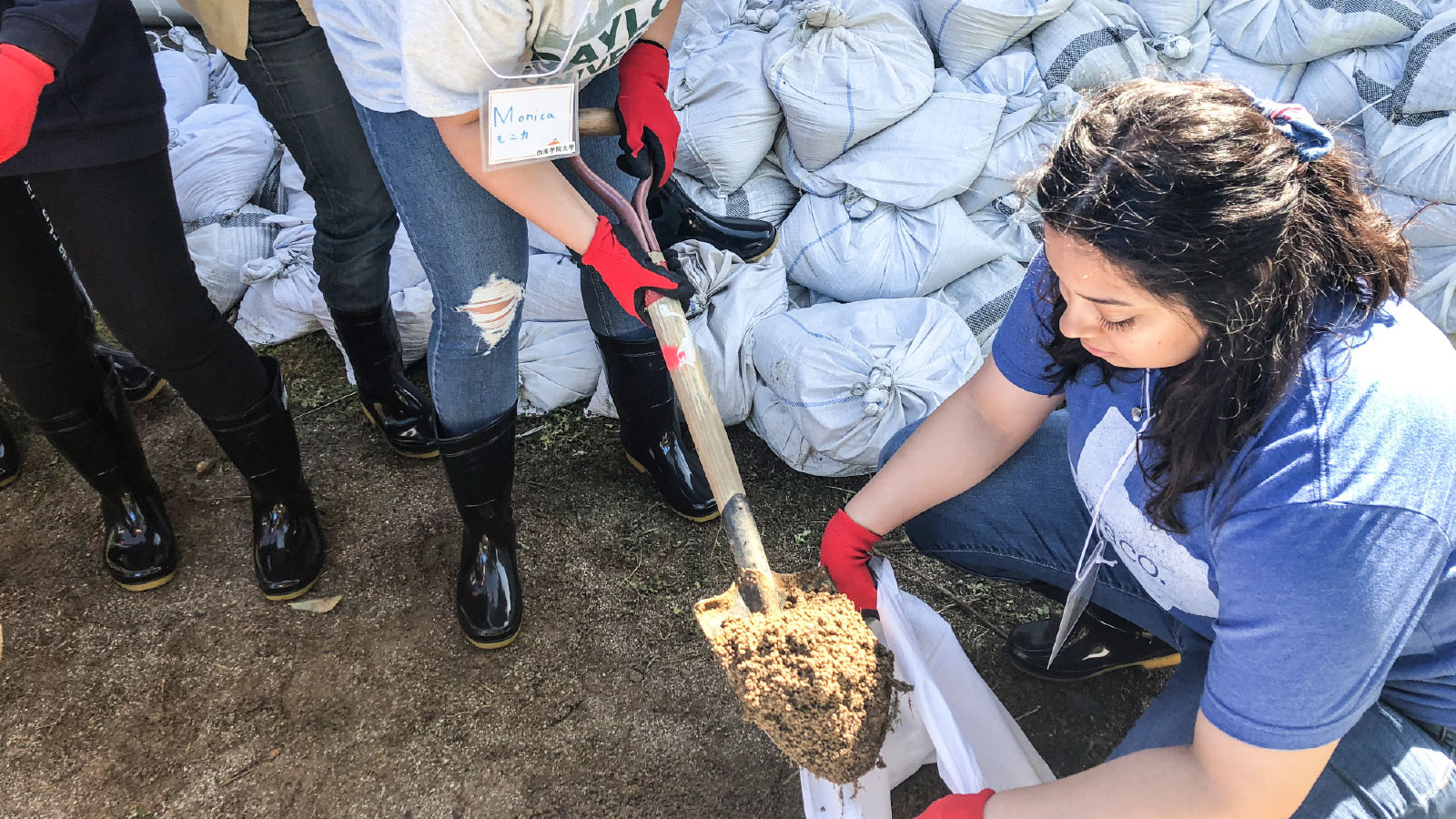Taking Baylor to the World
Students explore informed global engagement, faith, discipline-specific learning and service to seek solutions to real-world challenges through missions.
Spring break 2019 once again witnessed Baylor Missions overseeing multiple teams encountering the intersection of academic disciplines and faith.
Each Baylor Missions experience fosters informed global engagement combined with faith, discipline-specific learning and service that contributes solutions to real-world challenges at home and abroad, from healthcare to education, business consulting to hunger and immigration.
“These initiatives allow students to present their respective academic perspectives and passions to enhance and diversify the way we approach community challenges and solutions around the world,” Holly Tate, assistant director for Baylor global missions-student engagement, says. “We also hope the students who participate in our trips enjoy the experience and discover a sense of vocation and calling as they see firsthand how they can use their discipline to serve.”
Ten teams of more than 175 students, faculty, staff and friends of the University contributed hands-on service through locations across Texas and in Colombia,
Costa Rica, the Dominican Republic, the United Kingdom, Japan, and Peru. Keep
in mind that spring break isn’t the only time Baylor Missions coordinates these life-changing trips. For the 2019 May minimester, Baylor Missions sent 15 teams of more than 240 students, faculty, staff and friends of Baylor to locations in Ecuador, United Kingdom, Guatemala, Kenya, Romania, South Africa, Uganda, Zambia, and the United States. Students and faculty on summer mission trips also are actively engaged around the world.
First In Line // Dominican Republic
Baylor’s First In Line program, which provides resources to first-generation college students to support student success at the University and beyond, partnered with Baylor Missions to develop a new missions opportunity that sent a team of 25 first-generation students and two staff members to Santiago, Dominican Republic.
The team paired with Casas Por Cristo, a nonprofit organization that builds homes in Mexico, Guatemala and the Dominican Republic, to construct a home for a family. Working alongside Casas Por Cristo, the team served families and restored hope within the community.
Morgan London, BA ’18, a master’s candidate in international journalism from Overton, Texas, found Casas Por Cristo to be an admirable organization.
“Their mission to help communities through providing homes is remarkable,
and the process of it all is so impressive,” London says.
T’Erica Hudson, Kokernot Residence Hall director and staff leader for the trip, says the First In Line team planned to build the house in seven days. However, they completed the task in three days because of their high level of commitment toward the Polanco family.
The first day, the team established the foundation and laid concrete. On the second day, they built and installed walls. On the third day, they completed the roofing, electrical wiring and finishing touches, including a Baylor flag.
Gabriela Fierro, a senior political science and environmental studies major from Houston and president of Baylor’s Hispanic Student Association, says the group sees it as God’s work, not theirs.
“None of us would have imagined that we could have built a house in three days’ time,” Fierro says. “They told us beforehand that it would be special, but I had no idea that how it was going to feel whenever we were handing them the keys to their house and whenever we were praying over them.”
During such trips, Hudson says students can become more aware of how social and governmental issues affect certain populations differently. Despite the difficult living conditions and lack of resources in Santiago, students observed that Christ was at the center of the community.
“I believe our group fully grasped the concept of ‘We all have something to give,’” Hudson says. “Our students used the phrase as a reminder throughout the week to give up ourselves to ensure a better quality of life for the Polanco Family. Our students left the Dominican Republic feeling encouraged and empowered to continue to serve the community around them.”
Significant gifts from Baylor alumni and Baylor Chapel’s 2019 Change the World in a Day supported the team by providing the cost of building the house, furnishings and student scholarships.
The goal is for students to reflect and integrate their experiences in ways that help them to better understand the holistic nature of missions. Additionally, students are encouraged to share their stories at Baylor and in the community so that others might learn and be transformed by the experience.
School of Education // Costa Rica
Baylor School of Education (SOE) sponsored a mission trip to San José, Costa Rica, taking 19 students and faculty members to work at schools in the rural community of Santa Elena. The group taught classes that helped Costa Ricans practice their English and participated in a community philanthropic event to help children and community members with their education and English skills.
Trena L. Wilkerson, PhD, School of Education professor and graduate program director, served as a staff leader for the trip.
“It was an amazing experience with the teachers, community members and students at the school,” Wilkerson says. “Dr. Randy Wood (SOE professor) and I began this
partnership 11 years ago. It has been a wonderful experience where we have developed lasting friendships. One of the best things has been watching the children grow up. When we go back each year and see them,
it is like family.”
Wood, who also served as a staff leader for the trip, says the goal is to help students understand the importance of education and how it can assist in a move away from poverty.
“My love for those who have much less than we do is growing as I continue to see these great kids at school,” Wood, BA ’70, PhD ’78, says. “They don’t have a lot, but they are happy, and that taught me the lesson I know so well: Money is not happiness, but friends are.”
The group also taught mathematics, and they led a school field trip to explore their environment and cultural areas. The team also provided school uniforms and classroom supplies for students and teachers.
Wilkerson worked with the mathematics department at the University of Costa Rica in a teaching project, and the team made a visit to the Methodist Home and School in San José.
This year’s trip took a memorable if slightly nostalgic turn, with the addition of Baylor freshman Bryan Lizano as a team member. Lizano was born in Nicaragua but moved to Costa Rica when he was 3 years old. As a fifth grader, Lizano met Wood and other Baylor team members. Lizano came to have a fondness for the University through the years. As a team member, he called the trip amazing.
“I visited both the elementary school and the technical high school from which I graduated. I had shared how it is to study in the U.S., what is required and expected for those who aspire to study abroad, and I had the chance to help students practice English. I worked in the garden where kids grow plants for the school cafeteria, and I translated for both professors and students,” Lizano says. “The best part of the trip was playing soccer with the kids and seeing my parents.”
Seeing him as a team member made an impression for the students from the Santa Elena community who hope to study in the United States. Lizano visited with ambitious students who, like him, have encountered many challenges in the process of planning a university education abroad. He was able to develop friendships with members of his group and the community he visited and served.
“I learned that the actions I am making today have some kind of effect on other people’s lives,” Lizano says. “In the community where I am from, I found there are now a number of students working hard in school with the aspiration of pursuing an education abroad after I became the first student from such school to achieve a higher education abroad in the U.S. This situation shows that our actions and accomplishments are making a positive effect, which in the long term may potentially benefit the community in very different ways.”
Medical Missions
Four Baylor Missions teams centered on healthcare for underserved communities in the Dominican Republic, Colombia and Peru.
Dominican Republic
Multicultural Association of Pre-health Students (MAPS) and premed honor society Alpha Epsilon Delta (AED) — two Baylor student organizations — traveled to the Dominican Republic.
MAPS team members joined with the El Buen Samaritano organization to provide healthcare support and education to residents of bateyes (settlements around sugar cane fields) and La Romana. The 11 pre-health and public health students and faculty worked with local healthcare staff to provide basic health screenings and education for community members on diabetes, nutrition, dental care and women’s health.
Beth Lanning, PhD, is associate chair and associate professor of public health in Baylor’s Robbins College of Health and Human Sciences. She also serves as the department’s director of undergraduate programs.
“Experiences such as these push people out of their comfort zones,” Lanning, BSEd ’89, MSEd ’91, says. “It is when we are uncomfortable and when we are stretched that we tend to learn the most. The students were amazed at how little acts of kindness mean so much.”
Ten AED students and two faculty leaders partnered with One More Child Global to serve in the Azua community by providing health education and assisting with some of One More Child Global’s continuing long-term construction work.
The group brought medical supplies and school supplies to share with the Azua community. They also provided lessons on nutrition, vaccinations and hygiene while relating the subjects to the Gospel.
Emily Johnson, a senior biology major from Stockton, California, says the trip opened her eyes to medical service across cultures.
“The doctors are some of the most passionate people I’ve ever met and have been the best examples of patient care I have ever seen,” Johnson says. “When I think of what kind of doctor and person I want to be, I definitely draw on their examples.”
Colombia
Eighteen students with Baylor’s American Medical Student Association (AMSA) plus faculty also worked in partnership with One More Child Global members by assisting with clinics in the province of Villeta, Colombia. The team primarily served mothers with no prenatal care and adults with diabetes.
Team member Caleb Graham, a senior University Scholar from Plano, Texas, recalls the influence of the Colombian people the team met.
“The pastors at the church, the soldiers at the camp and the medical professionals were so dedicated and thankful for us being there,” Graham says. “Their extreme generosity and genuine kindness are worth far more than the medication we brought them.”
Peru
For the first time, students in Baylor’s Medical Service Organization (MSO) partnered with Baylor’s Louise Herrington School of Nursing for a medical mission trip to Peru. Two faculty members and 25 students worked with Operación San Andres (OSA) to serve residents in the Collique community, an area of harsh living conditions due to the mountainous terrain. Baylor’s team worked with community members to complete health screenings and promote health education in the area.
Jeanne Carey, director of the Louise Herrington School of Nursing Simulation Center, was a team member for the trip.
“The Baylor chapter of MSO stresses the importance of developing service relationships,” Carey says. “They recognize that any significant impact is going to be realized through a commitment over time. That’s why it was important that we find an organization like OSA to partner with — an established entity that knows the needs of the community.”
College of Arts and Sciences // Japan
Yoshiko Fujii Gaines, senior lecturer of Japanese in Baylor’s College of Arts and Sciences, worked with Baylor Missions to arrange a new University missions team focused on seeking solutions for childhood poverty in Japan.
“Just like America, developed countries like Japan face issues such as poverty among children,” Gaines says.
Baylor students from various academic disciplines traveled to Tokyo and Fukuoka to serve with local organizations focused on fighting childhood poverty. The team volunteered at local facilities to provide free and discounted meals, working alongside college students at partnering universities, including Hosei University in Tokyo and Seinan Gakuin University in Fukuoka.
“Mission trips can give you different experiences and perspectives than studying about another culture as an academic subject,” Gaines says. “What you are learning now will help you determine what your talents are and how you can use them and to find your calling.”
Groups worked in kodomo shokudos — free or reduced-price meal community diners run by volunteers. They volunteered at Toy Libraries, which assists single mothers and new parents. On their last day in Tokyo, the group visited the Hosei University campus and had an opportunity to learn how to prepare sushi and yakitori alongside Hosei students.
Volunteers flew to Fukuoka and visited the Asakura District, which was devastated by flooding and mudslides in 2017. Team members helped make sandbags for a family that recently had a landslide behind their home,
visited Haki Elementary School in Asakura, and engaged in a cultural exchange with fifth and sixth graders to help them with English skills.
Stefan Fitting, a senior University Scholar from Lorena, Texas, was a team member on the trip.
“It was evident that the communities came to the kodomo shokudos to see us, specifically so their kids could meet foreigners and practice their English,” Fitting says. “Getting to be a part of the community for a day and sharing love definitely felt like the most impactful thing we did. Poverty is not always as visible there as it is here. Many of the families looked similar to any other family.”
Baylor students visited the Baptist-run Hisayama Residence Care, a facility for people with severe disabilities, to engage in cultural exchange with residents. They also toured Seinan Gakuin University’s Bible Botanical Garden and Bible Museum.
